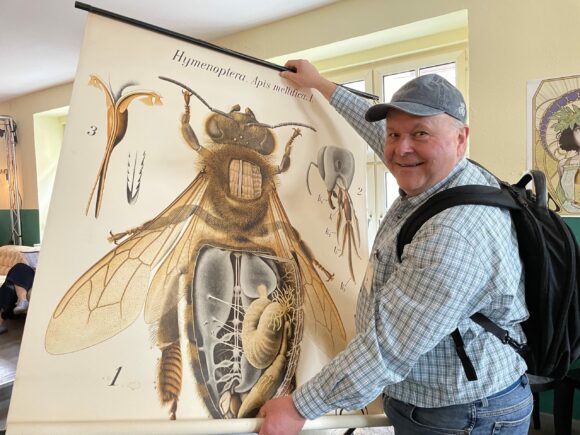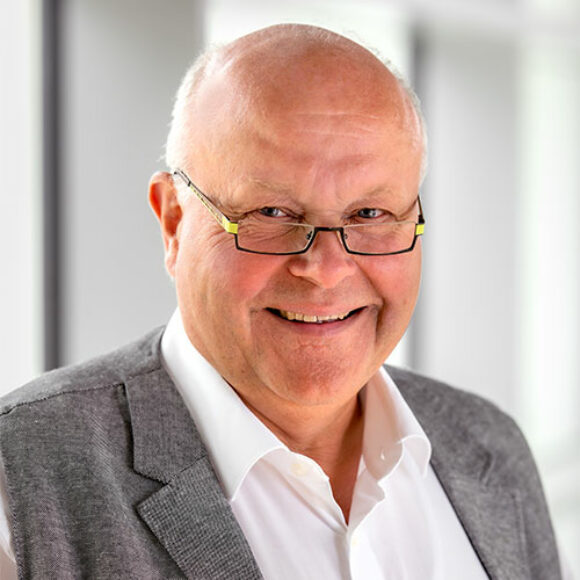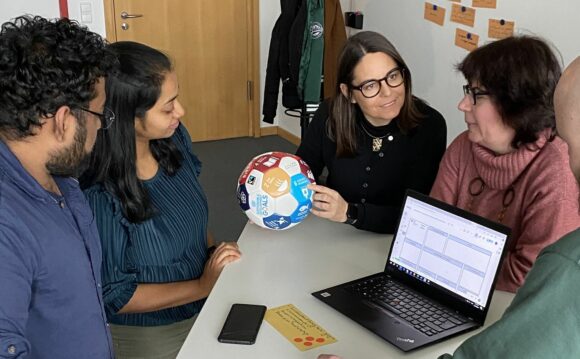The student project “Communication concept for rainwater management Gebsattel (KoReGeb)“, which was carried out as part of the ERNie research project (“Investigation of the use of rain barrels for rainwater retention in a residential area to relieve the burden on the canal during heavy rainfall”) and on behalf of the company Härtfelder Ingenieurtechnologien GmbH from Bad Windsheim, was recently completed.
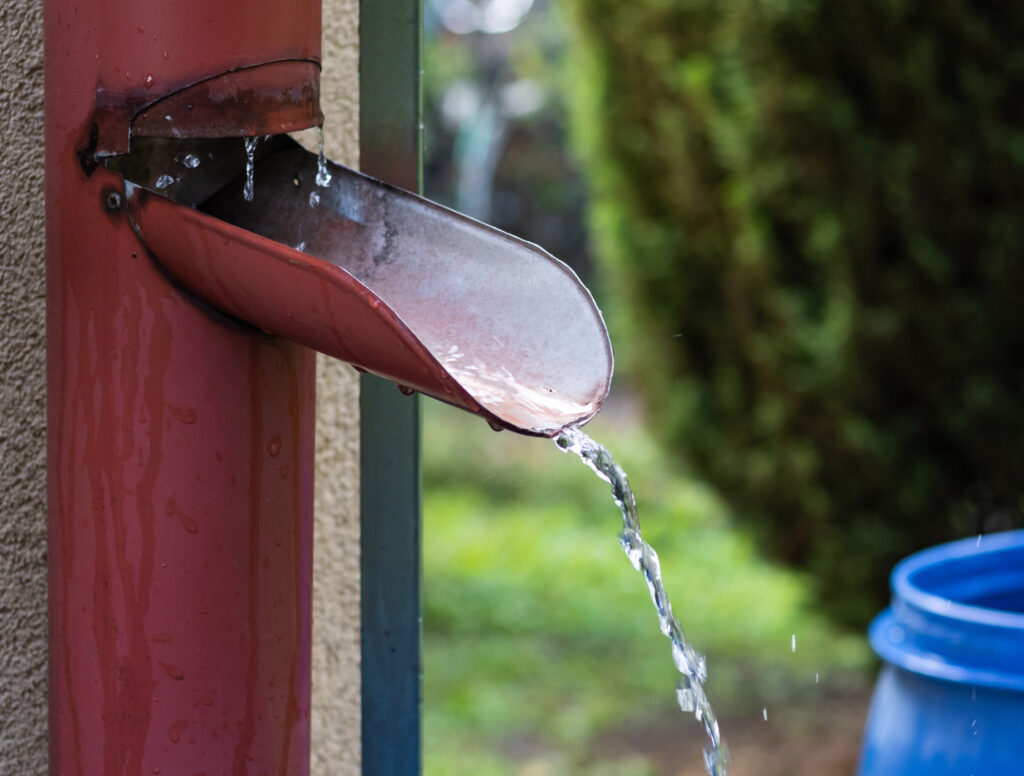
Climate change-induced flooding overloads sewage systems
In recent years, heavy rain events and flooding have been on the rise. Particularly in urban areas with a high degree of land sealing, the sewer system can quickly become overloaded, as large portions of rainwater come to run off and flow into the sewer system
Due to further settlement in already existing structures, an adapted dimensioning of the sewer system is also associated with very high costs – because the existing sewer system must be structurally expanded or renewed according to the demand.”
Prof. Günter Müller-Czygan
Against this background, there is a massive need for action in dealing with concentrated water masses in order to avoid or minimize their sometimes devastating effects and damage as best as possible.
Canal expansion is difficult for small communities
The small community of Gebsattel in Middle Franconia, west of Nuremberg, faces precisely this problem due to an old and too small sewer combined with its location in a depression. A sewer extension represents an unsustainable, high financial burden for the community. Therefore, the ERNie project will investigate alternatives to sewer expansion through rainwater retention by means of rain barrels or cisterns during heavy rainfall
The goal of the project is to implement an innovative and more cost-effective alternative for relieving the burden on the canal through decentralized storage of precipitation.”
Dr. Julia Frank
In consultation with residents affected by flooding, rain barrels or cisterns will be placed on properties that are networked together and can be controlled remotely. Filling the rain barrels or cisterns during heavy rains should relieve the sewer and reduce the risk of flooding. In order to investigate these alternatives to canal expansion, the water flow in the community of Gebsattel is first simulated using a terrain model. Based on this simulation, the optimal location and volumes of the rain barrels/cisterns will then be calculated.
The communication concept integrates residents’ wishes
In the ERNie project, the wishes and needs of the affected residents are also to be taken into account by means of an elaborated communication concept in order to safeguard the interests of the residents and thus to be able to implement the project successfully. The student group of the Master Project Management of the Hof University of Applied Sciences, consisting of Hanna Teichmann, Lasse Neumann, Oguzhan Günes and Jonas Othmann, took over the elaboration of this communication concept for the research group “Water Infrastructure and Digitalization” of the Institute for Water and Energy Management (iwe) under the supervision of Prof. Müller-Czygan and Dr. Frank. Questionnaires and interviews were used to shed light on the willingness of local residents to accept alternative solutions for effective stormwater management in the Gebsattel community. Citizens were informed about the planned project in advance both in a public municipal council meeting and via the municipal gazette
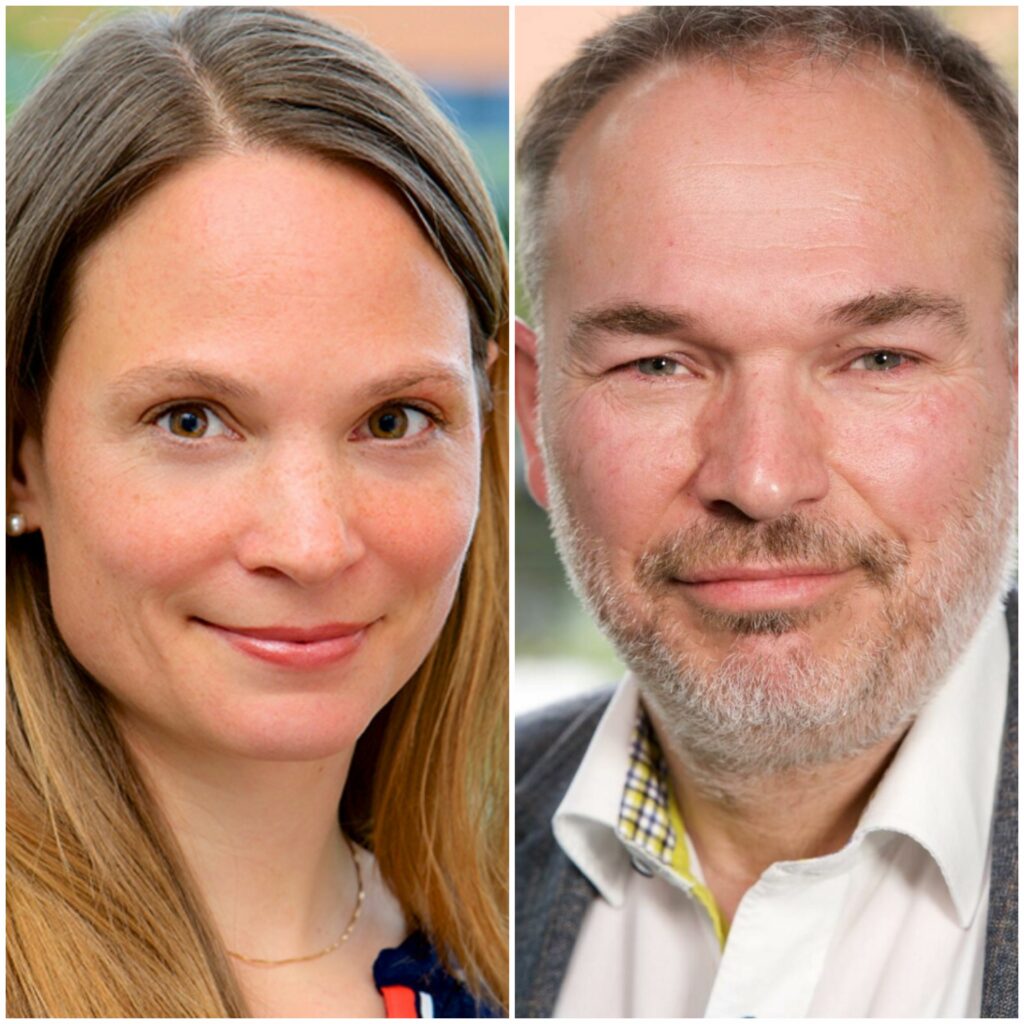
Corona-related: Interviews by telephone
In an information letter of the student group first the adjacent citizens were informed that the interviews in the context of the communication concept in December 2021 corona conditionally only by telephone would be accomplished. The goal was to find out how well residents felt informed about the project, whether they would be willing to install new stormwater management technology on their property and support the project financially, and how they envisioned further communication about the progress of the project in the best possible way.
Results show high acceptance among residents
Analysis of the interviews revealed that 80% of residents were positive about the planned alternatives for effective stormwater management. Here, the desire to build an effective system to prevent flooding was in the foreground. In addition to flood protection, however, residents also hoped to preserve the value of their own property. Residents’ concerns were about being “second-class” citizens and that the decision-making process for one of the solution options would be delayed even further. In addition, there were fears of a high time requirement and high costs. 20% of the residents were in favor of considering other alternative solutions for the stormwater management of Gebsattel, such as enlarging the canal or using a large-scale stormwater retention basin. In doing so, they wanted to protect their own interests before those of the general public. Unnecessary construction measures and a wrong cost allocation on the part of the municipality were feared and they expected negative financial effects for themselves and a nuisance caused by construction measures due to the planned project.
The need for action is clear: financing remains the sticking point
From the residents’ survey, it can be seen that the financing of the project plays an important role. However, the need for action in general was clear to all. For the group with a positive attitude, flood protection and the resulting increase in quality of life are in the foreground. However, those affected do not want to be left alone by the municipality and to pay for the damage caused by others
The critics of the project attached importance to the investigation of the mentioned further alternative solutions, even if this possibly does not correspond to the view of the majority and could hit many of the respondents disproportionately harder due to different economic situations. These far more expensive options would hit many of the respondents disproportionately harder due to different economic situations. In terms of communication about the project, residents would like to be informed when needed. However, it appears that more respondents would like to see improvements in the information provided to date about the project, as the last information campaign was some time ago
In summary, communication in this project should be deepened in order to maintain the positive attitude of the residents regarding the planned project.”
Prof. Günter Müller-Czygan
For this purpose, written information letters in the municipal gazette or information by letter directly to the residents are recommended.




